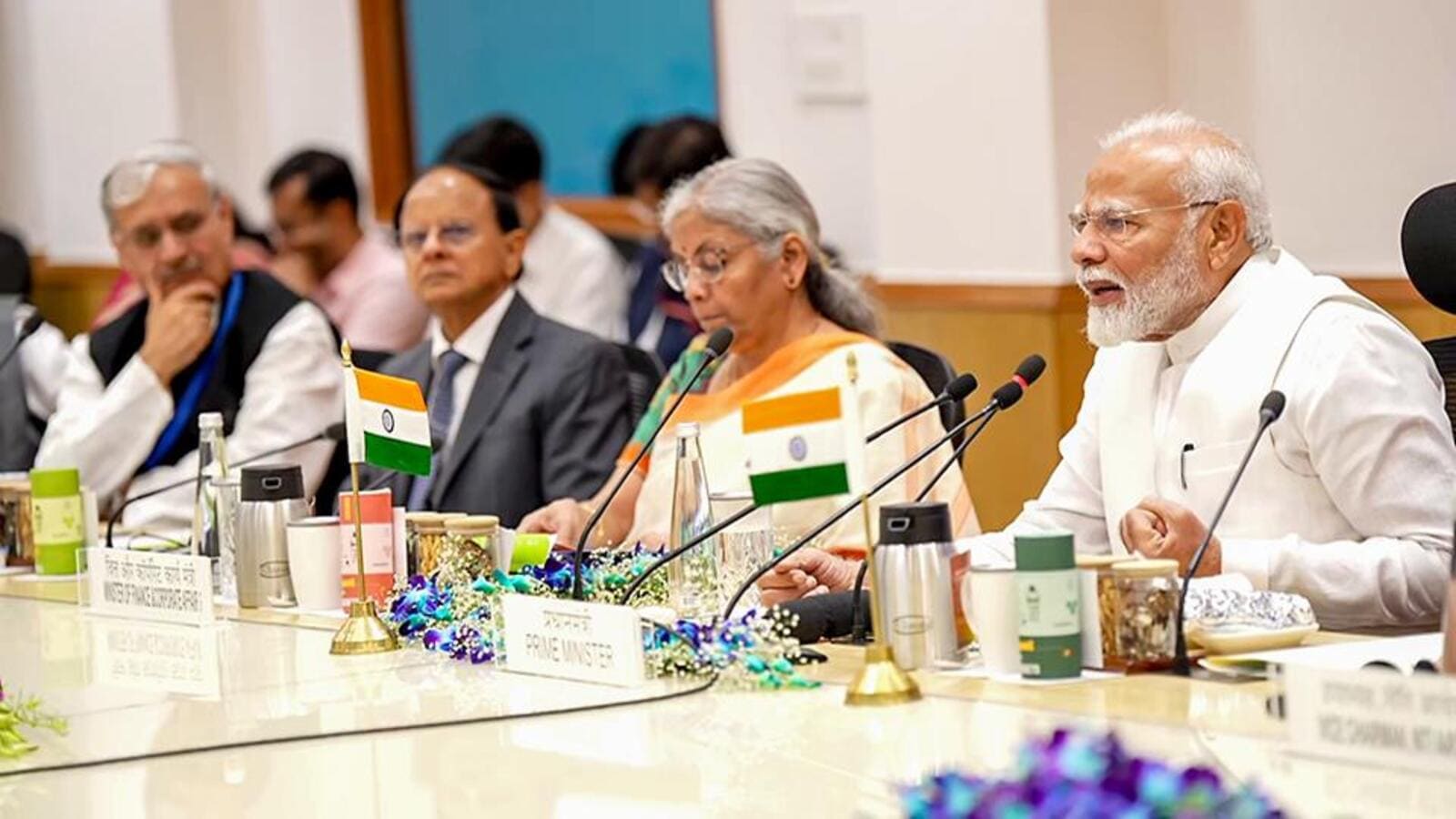


Prime Minister Narendra Modi met economists on Thursday for a discussion that centered around policy measures required to boost inclusive growth with a medium-term road map to make India the third-largest economy in the world, which will in turn pave the way for achieving the aim of Viksit Bharat (developed India) by 2024, three people aware of the development said.
The conversation, ahead of the Union Budget 2024-25, was largely about accelerating efforts to rapidly alleviate poverty by keeping inflation under check, deepening and broadening welfare measures, and creating employment opportunities through investments and skilling, the people said, asking not to be named.
In a social media post on X, the Prime Minister confirmed the development. “Earlier today, interacted with eminent economists and heard their insightful views on issues pertaining to furthering growth,” he said.
Also Read | Union Budget 2024: Will Nirmala Sitharaman bring income tax relief for middle class?
The meeting, held at Niti Aayog, is crucial as the government is likely to present the Modi government’s vision for the next five years in the budget.
Speaking in the Rajya Sabha, Modi on July 3 stressed that the government will accelerate and expand the pace of reforms undertaken in the last 10 years and those efforts would witness newer heights and depth in terms of saturation in delivery of basic services.
The meeting on Thursday was attended Union finance minister Nirmala Sitharaman, sectoral experts, economists, and senior officials. Sitharaman is scheduled to present the budget for FY25 in the Parliament on July 23.
Niti Aayog vice chairman Suman Bery was a part of the meeting, as were planning minister Rao Inderjit Singh, chief economic advisor V Anantha Nageswaran, economists Ashok Gulati and Surjit Bhalla, and banker KV Kamath.
Also Read | Highlight pro-people aspects of Union budget: Modi tells BJP MPs
“This budget will be the first document providing a road map transform India into a $30 trillion developed economy by 2047 for projected 165 billion citizens,” one of the people aware of the details said. “It will provide a template for a future-ready India.” The identified focus areas are rural development, agricultural growth, investments in infrastructure, health, housing, sanitation, education, skilling, security and trade, he added.
The PM will take inputs of experts and economists for accelerating economic growth and social reforms, a second person said. “The idea is to make lives of citizens easy and prosperous,” he added. The suggestions centered around further consolidating the fiscal position, continuing public expenditure to boost growth, giving impetus to ease of living, and focussing on farmers, women, youth, middle-classes, and the vulnerable, he said.
Economic development to tackle hunger and poverty eradication was also proposed in the meeting, a third peson said.
On July 3, in the Rajya Sabha, Modi said: “The next five years will be decisive years for the fight against poverty… and this country will be victorious in this fight against poverty. I can say with confidence based on the experience of the last 10 years.”
Addressing the joint session of the Parliament on June 27, President Droupadi Murmu — delivering a customary speech put together by the government — said: “This budget will be an effective document of the government’s far-reaching policies and futuristic vision. Along with major economic and social decisions, many historic steps will also be seen in this budget.”